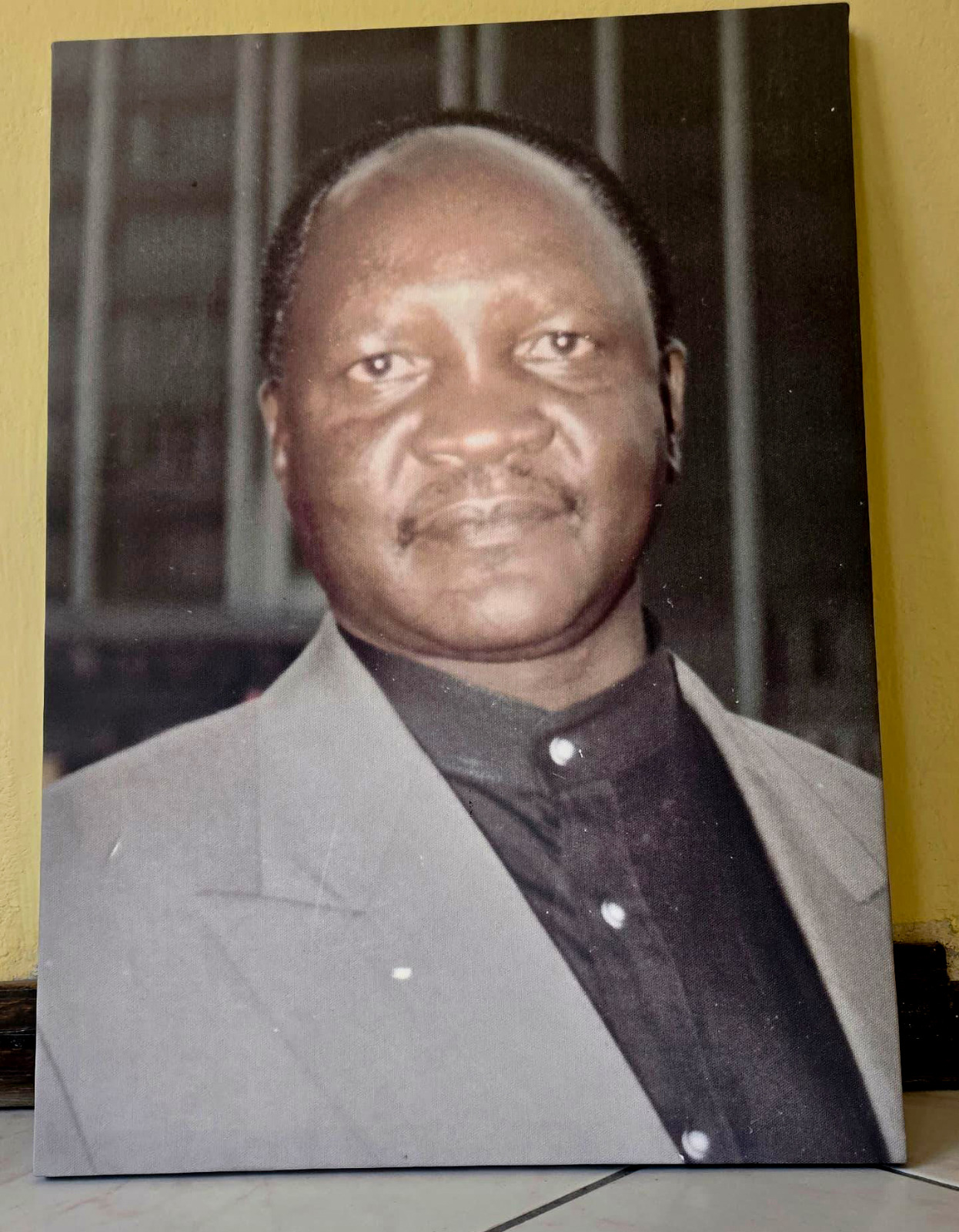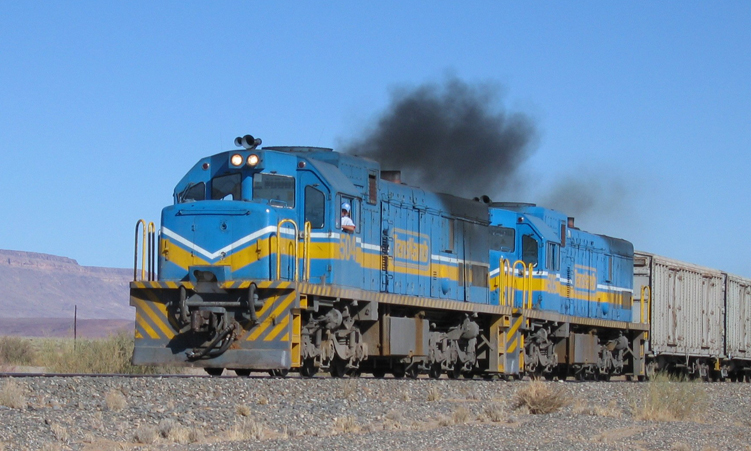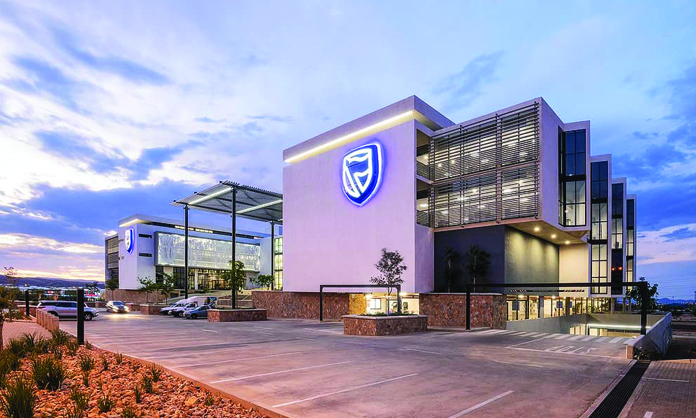A SPANISH long-line fishing trawler captain, based in Luederitz, has been accused by the crew of another trawler of deliberately endangering their lives by allegedly dropping mooring ropes around them that caused the second boat’s propellers to get snagged, forcing them back into harbour for repairs.
The incident, which took place late last Saturday afternoon about 18 nautical miles south of Luederitz, is just the latest in what maritime experts say is a regular occurrence as the fight for ever-scarcer fish becomes more intense between ever-increasing numbers of trawlers and long-line vessels. Trawlers use nets that are set out and then dragged in with the catch, while long-liners lay out fishing lines up to 2 000 metres long just below the surface with thousands of baited hooks, which are then hauled in once a day and reset.In this particular incident, crew members of the state-owned Seaflower Ohamba said they were approaching an area south of Luederitz with their nets out, when the West Coast II of Marco Fishing tried to stop them from coming closer to where their own line was anchored.When the Ohamba’s captain Fanuel Aambato refused to heed the West Coast II’s warning, crew members allege, the latter then deliberately motored in circles around the Ohamba while dropping coils of mooring line into the water.They allege the West Coast II was at times as close as 30 metres from their own vessel.A line, once entangled into a boat’s propeller, can have a deadly effect, as happened with the sinking of the Meob Bay in 2005 with the loss of 19 lives after a diamond-diving boat had left lines in the ocean.The Meob Bay’s prop, once caught in the line, caused that trawler to turn its stern into the swell and wind, causing it to take on water and sink rapidly.The crew of the Ohamba charge that the captain of the West Coast II, whose name is known to The Namibian, was exposing them to the same danger.They also accuse him of endangering his own crew’s lives by sailing too close to the Ohamba while laying out the lines – three of which were eventually disentangled yesterday from the Ohamba’s prop – and demanded that he be charged with attempted murder.Manuel Fernandez, owner of the West Coast II, yesterday said that he had not yet heard his captain’s version of the event.”There are always two sides to every story, and I have to still hear my guy’s side of it, then I will be able to comment,” Fernandez said yesterday.Captain Bill Wilson, a seasoned expert in maritime law, yesterday cautioned that incidents like these are becoming more common as the fight for scarce fish heats up.While confirming that he had been retained by one of the parties as a consultant in this matter, he also questioned whether the Ohamba’s crew were ever really at risk.”This is not the first time something like this happens; it will also not be the last time,” Wilson said yesterday.”Some captains pretend not to see (the buoys marking) a long-line if they know there is fish there….There are always two sides to any story.”He did, however, concede that the Seaflower Ohamba may have a case for damages for loss of income while effecting repairs to the trawler, which now has to be put up in dry-dock.Crew members earn a specific rate while at sea, as well as a certain commission calculated to the size of the catch they bring in.Ohamba’s crew say the sea was very high at the time, with a 40-knot wind whipping up a six- to seven-metre swell.Had the Ohamba’s engines stopped as a result of the mooring lines allegedly deliberately dropped in its way, they are convinced that they would have met the same fate as the Meob Bay.The Ministry of Works, Transport and Communication’s Directorate of Maritime Affairs in Windhoek was not available for comment, while its official in Luederitz refused to confirm or deny that charges had been laid against the West Coast II’s skipper.Seaflower’s CEO Ronnie Coppin, reached for comment in Walvis Bay, confirmed “an altercation” but declined to comment on the matter until all reports have been received and all official procedures have been followed.Coppin said he hoped the matter would be settled amicably.”It’s an age-old problem… it’s difficult to control situations like this out at sea, especially during the prevailing economic conditions where some captains are trying very hard to prove themselves,” he said.The problem would only be solved once all boats have implemented the so-called VMS (Vessel Monitoring System) that would track all boats and their fishing patterns via GPS (Global Positioning System), which all boats had to have on board by March this year, Coppin said.* John Grobler is a freelance journalist: 081 240 1587Trawlers use nets that are set out and then dragged in with the catch, while long-liners lay out fishing lines up to 2 000 metres long just below the surface with thousands of baited hooks, which are then hauled in once a day and reset.In this particular incident, crew members of the state-owned Seaflower Ohamba said they were approaching an area south of Luederitz with their nets out, when the West Coast II of Marco Fishing tried to stop them from coming closer to where their own line was anchored.When the Ohamba’s captain Fanuel Aambato refused to heed the West Coast II’s warning, crew members allege, the latter then deliberately motored in circles around the Ohamba while dropping coils of mooring line into the water.They allege the West Coast II was at times as close as 30 metres from their own vessel.A line, once entangled into a boat’s propeller, can have a deadly effect, as happened with the sinking of the Meob Bay in 2005 with the loss of 19 lives after a diamond-diving boat had left lines in the ocean.The Meob Bay’s prop, once caught in the line, caused that trawler to turn its stern into the swell and wind, causing it to take on water and sink rapidly.The crew of the Ohamba charge that the captain of the West Coast II, whose name is known to The Namibian, was exposing them to the same danger.They also accuse him of endangering his own crew’s lives by sailing too close to the Ohamba while laying out the lines – three of which were eventually disentangled yesterday from the Ohamba’s prop – and demanded that he be charged with attempted murder.Manuel Fernandez, owner of the West Coast II, yesterday said that he had not yet heard his captain’s version of the event.”There are always two sides to every story, and I have to still hear my guy’s side of it, then I will be able to comment,” Fernandez said yesterday.Captain Bill Wilson, a seasoned expert in maritime law, yesterday cautioned that incidents like these are becoming more common as the fight for scarce fish heats up.While confirming that he had been retained by one of the parties as a consultant in this matter, he also questioned whether the Ohamba’s crew were ever really at risk.”This is not the first time something like this happens; it will also not be the last time,” Wilson said yesterday.”Some captains pretend not to see (the buoys marking) a long-line if they know there is fish there….There are always two sides to any story.”He did, however, concede that the Seaflower Ohamba may have a case for damages for loss of income while effecting repairs to the trawler, which now has to be put up in dry-dock.Crew members earn a specific rate while at sea, as well as a certain commission calculated to the size of the catch they bring in.Ohamba’s crew say the sea was very high at the time, with a 40-knot wind whipping up a six- to seven-metre swell.Had the Ohamba’s engines stopped as a result of the mooring lines allegedly deliberately dropped in its way, they are convinced that they would have met the same fate as the Meob Bay.The Ministry of Works, Transport and Communication’s Directorate of Maritime Affairs in Windhoek was not available for comment, while its official in Luederitz refused to confirm or deny that charges had been laid against the West Coast II’s skipper.Seaflower’s CEO Ronnie Coppin, reached for comment in Walvis Bay, confirmed “an altercation” but declined to comment on the matter until all reports have been received and all official procedures have been followed.Coppin said he hoped the matter would be settled amicably.”It’s an age-old problem… it’s difficult to control situations like this out at sea, especially during the prevailing economic conditions where some captains are trying very hard to prove themselves,” he said.The problem would only be solved once all boats have implemented the so-called VMS (Vessel Monitoring System) that would track all boats and their fishing patterns via GPS (Global Positioning System), which all boats had to have on board by March this year, Coppin said.* John Grobler is a freelance journalist: 081 240 1587
Stay informed with The Namibian – your source for credible journalism. Get in-depth reporting and opinions for
only N$85 a month. Invest in journalism, invest in democracy –
Subscribe Now!






